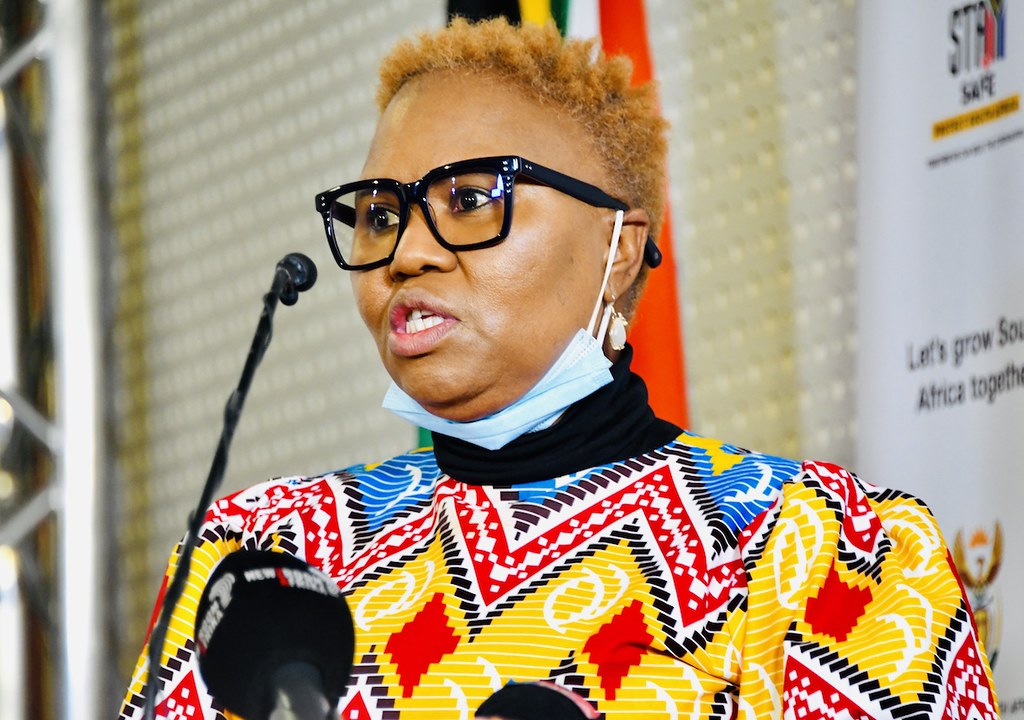SOCIAL Development Minister Lindiwe Zulu says that South Africa’s special R350 Covid-19 Social Relief of Distress (SRD) grant should help open the way to the introduction of a basic income grant in the country.
Registration for the grant will open on Friday (6 August) with payments expected to start rolling out in the last week of August.
The previous SRD grant expired on 30 April 2021 and this means that all those who had previously applied must re-apply again, Zulu said. The grants are for people who are:
- A South African citizen, permanent resident or refugee registered on the Home Affairs database, or other eligible permit holders;
- Currently residing within the borders of South Africa;
- Over 18 years of age and under 60;
- Unemployed;
- Not receiving any other social grant;
- Not receiving any employment benefits or student benefits;
- Not receiving any other government funding or support.
Caregivers who are not receiving any grant on their own behalf will also have to apply for the special Covid-19 Social Relief of Distress Grant.
There will be no retrospective payments for the months the grant was not in existence – from May to July 2021 – and the new applications will only be effective from August 2021.
The applications shall be considered from the month of application and paid up to 31 March 2022, provided the qualifying criteria continue to be met.
All applications must be done electronically/digitally and any of the following frontline application channels may be used:
- Through the website at https://srd.sassa.gov.za;
- Through the WhatsApp line on 082 046 8553; or
- The USSD line *134*7737#
Move toward permanent income grant
Zulu said that the Covid-19 relief measures were estimated to have reduced the number of households with incomes below the food poverty line from 20.6% to 18.8%, and a reduction in inequality from 0.644 to 0.613.
Research showed that the majority of recipients used the money to buy food, she said.
“We have also highlighted that the Special Covid-19 SRD grant should ideally be a stepping stone to a basic income grant.
“We are currently working on the policy aspects surrounding this, including the implementation and resource mobilisation aspects related to this grant, working with various stakeholders through a series of consultations and will provide updates on same accordingly.”
During the first iteration of the SRD grant, Zulu said that almost 10 million applications were received with just over six million approved for payment at a cost of R24 billion.
An additional R15 billion was paid as top-ups for a period of six months to all grant types.
President Cyril Ramaphosa announced the reintroduction of the R350 Social Relief of Distress (SRD) grant on 25 July as part of the government’s relief measures around Covid-19 and the recent social unrest.
While the grant is set to remain in place until March 2022, the president has also recently said that the government is considering the feasibility of introducing a permanent basic income grant.
Ramaphosa said that the government is also currently investigating the feasibility of introducing a basic income grant in South Africa.
Speaking at a Mandela Day memorial lecture on 18 July, the president said that the grant would show people ‘that the government cared’.
“This will validate our people and show them that we are giving serious consideration to their lives.
“We are giving active consideration to the grinding poverty that we continue to see in our country. We need to address the structural inequalities in our economy,” he said.
The Congress of South African Trade Unions (Cosatu) has also called for the introduction of a basic income grant as part of a response to the massive socioeconomic fallout from the riots in KZN and Gauteng.
“In responding to the crisis, the South African government has no choice but to abandon its austerity framework and choose an expansionary fiscal policy framework,” Cosatu said. “This moment calls for a change of mindset and an acknowledgement of the fact that the current unemployment and poverty levels are not sustainable.”
- Business Tech

